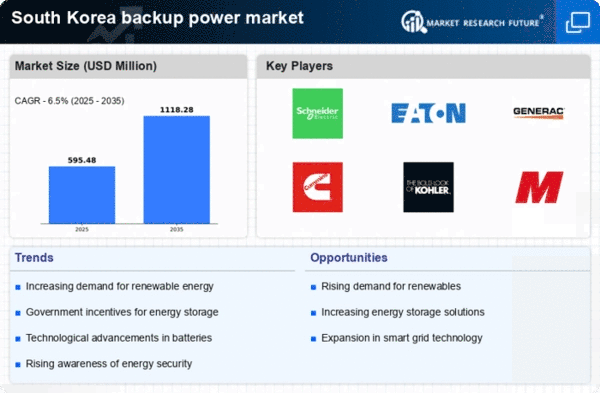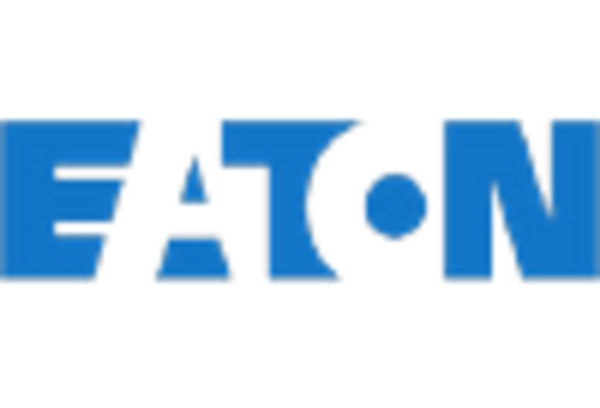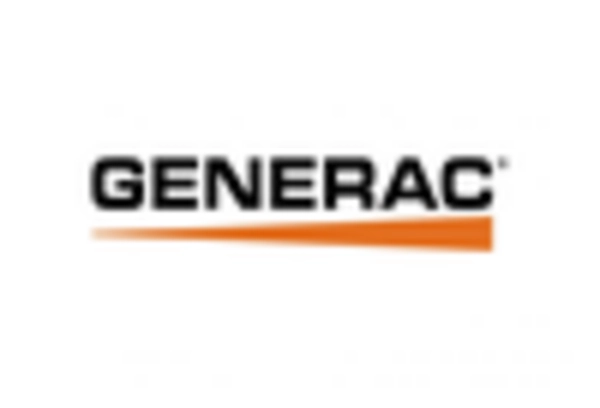Rising Energy Demand
The increasing energy demand in South Korea is a pivotal driver for the backup power market. As urbanization and industrialization continue to expand, the need for reliable energy sources becomes paramount. The country's energy consumption has seen a steady rise, with projections indicating a growth rate of approximately 2.5% annually. This surge in demand necessitates the implementation of backup power solutions to ensure uninterrupted energy supply, particularly during peak usage periods. The backup power market is thus positioned to benefit from this trend, as businesses and households seek to mitigate the risks associated with power outages. Furthermore, the government's commitment to enhancing energy security further amplifies the need for backup power systems, making it a critical component of the energy landscape in South Korea.
Increased Frequency of Power Outages
The frequency of power outages in South Korea has been on the rise, driven by aging infrastructure and extreme weather events. This trend significantly impacts the backup power market, as both residential and commercial sectors seek reliable solutions to maintain operations during outages. Reports indicate that power interruptions have increased by approximately 15% over the past five years, prompting a heightened awareness of the importance of backup power systems. The backup power market is responding to this challenge by offering advanced technologies that ensure seamless transitions during power failures. As consumers become more aware of the potential financial losses associated with outages, the demand for backup power solutions is expected to grow, further solidifying the market's relevance in the energy sector.
Growing Awareness of Energy Sustainability
There is a growing awareness of energy sustainability among consumers and businesses in South Korea, which is influencing the backup power market. As environmental concerns become more pronounced, the demand for eco-friendly backup power solutions is increasing. Consumers are increasingly seeking systems that utilize renewable energy sources, such as solar power, in conjunction with traditional backup systems. This shift towards sustainable energy practices is prompting the backup power market to innovate and offer greener alternatives. Market data suggests that the adoption of solar-powered backup systems has increased by approximately 20% in the last two years. This trend indicates a potential shift in consumer preferences, as individuals and organizations prioritize sustainability alongside reliability in their energy solutions.
Technological Innovations in Backup Systems
Technological advancements in backup power systems are transforming the landscape of the backup power market. Innovations such as smart grid technology and advanced battery storage solutions are enhancing the efficiency and reliability of backup power systems. The integration of Internet of Things (IoT) devices allows for real-time monitoring and management of energy resources, which is particularly beneficial for businesses that require uninterrupted power supply. The backup power market is witnessing a shift towards more sophisticated solutions that not only provide power during outages but also optimize energy usage. As these technologies become more accessible and affordable, the market is expected to expand, catering to a broader range of consumers seeking reliable backup power options.
Government Initiatives for Energy Resilience
The South Korean government has implemented various initiatives aimed at enhancing energy resilience, which serves as a significant driver for the backup power market. Policies promoting energy independence and security have led to increased investments in backup power technologies. The government has allocated approximately $500 million towards research and development in energy storage systems, which are crucial for the backup power market. These initiatives not only encourage innovation but also provide financial incentives for businesses to adopt backup power solutions. As a result, the market is likely to experience growth as companies align their operations with national energy policies, ensuring they are equipped to handle potential disruptions in power supply.
















